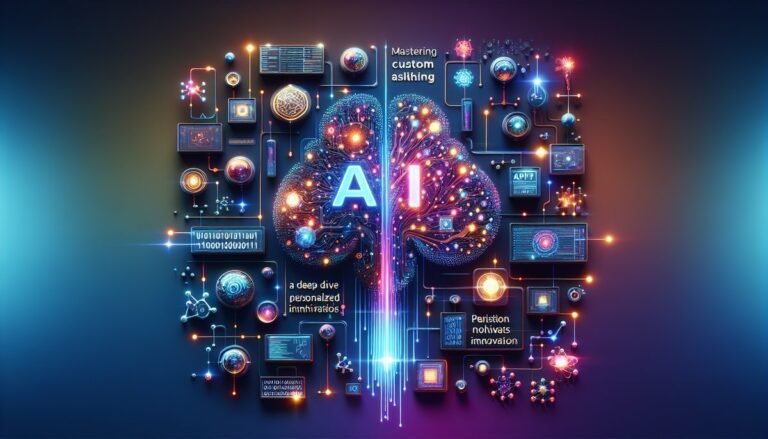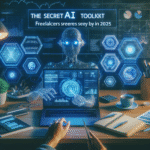As urban landscapes continue to evolve, the transformative power of AI applications is becoming increasingly evident. From harnessing data to streamline public transportation systems to designing homes that intuitively respond to the needs of their inhabitants, AI is laying the groundwork for a future that promises cleaner, smarter, and more efficient living environments. Imagine cities where waste management is so optimized that garbage truck routes adapt in real-time to minimize emissions, or homes that learn your preferences to adjust lighting and temperature, conserving energy while enhancing comfort. These aren’t far-off dreams but present-day realities being shaped by the innovative use of AI.
Revolutionizing Urban Cleanliness
At the heart of cleaner cities lies the ability of AI applications to process vast amounts of data, identifying patterns and suggesting actionable insights. This capability is crucial in tackling urban pollution. For instance, AI-driven sensors and cameras can monitor air quality in real time, providing city planners with the information they need to implement effective pollution control measures. Furthermore, smart waste management systems employ AI to optimize collection routes, reducing fuel consumption and emissions. In this way, AI is not only contributing to a cleaner environment but also enhancing the quality of urban life.
Creating the Smart Homes of Tomorrow
Imagine walking into a home that knows you as well as you know yourself. AI applications are at the forefront of crafting such intelligent living spaces. By integrating with the Internet of Things (IoT), AI empowers devices to communicate and collaborate. A thermostat that adapts to your schedule, lights that adjust to your mood, and security systems that learn to differentiate between familiar faces and strangers – these are just a few examples of how AI is making homes smarter. With energy efficiency and user-friendly interfaces, these smart systems not only offer convenience but also contribute significantly to reducing domestic energy consumption.
Enhancing Transit Efficiency
Public transportation systems worldwide are benefiting from the remarkable capabilities of AI applications. By analyzing traffic patterns and commuter behavior, AI can predict congestion and suggest alternative routes, making transit faster and more reliable. Additionally, AI-powered systems are improving the maintenance of transit infrastructure, predicting when repairs are needed, and thereby preventing costly breakdowns. This predictive maintenance ensures that buses, trains, and other forms of public transport run smoothly, reducing delays and enhancing the overall efficiency of urban transit.
In conclusion, the impact of AI applications on our cities and homes is profound and multifaceted. By leveraging AI’s ability to analyze data and learn over time, urban planners and homeowners alike are creating environments that are not only more efficient but also more attuned to the needs of their inhabitants. As AI technology continues to advance, its potential to further transform our living spaces and transportation systems is boundless. The future promises to be an exciting landscape, where technology and human ingenuity converge to create a better world.
Transforming Urban Landscapes: The Role of AI in Cleaner Cities
In the bustling heart of urban environments, AI applications are pioneering a revolution in environmental management. Cities are notorious for their complex challenges, from pollution to waste management. However, the integration of Artificial Intelligence offers innovative solutions. For instance, AI-powered sensors can be deployed throughout a city to monitor air quality in real-time. These sensors collect data on pollutants and harmful emissions, allowing city officials to take swift action when air quality deteriorates.
Moreover, AI is optimizing waste management practices. By using machine learning algorithms, cities can predict waste production patterns, enabling more efficient collection routes and reducing the environmental footprint of garbage trucks. A practical example of this is found in Singapore, where smart bins equipped with AI technology alert waste management companies when they are full, thus streamlining pick-up schedules and minimizing unnecessary trips.
Harnessing AI for Sustainable Urban Planning
AI applications extend beyond immediate environmental concerns to more strategic efforts in urban planning. By analyzing vast datasets from various sources, including satellite imagery and socio-economic data, AI can help city planners design more sustainable and resilient urban infrastructures. This includes optimizing green spaces, improving stormwater management systems, and planning for population growth.
Consider a scenario where AI models simulate the impact of new construction projects on existing ecosystems. These models can forecast potential environmental disruptions, providing planners with insights needed to mitigate negative impacts before they occur. This proactive approach not only fosters cleaner cities but also enhances the quality of urban living.
Smart Homes: AI’s Influence on Modern Living
As AI applications seep into the design of contemporary homes, the concept of “smart” living is rapidly evolving. Imagine a home where the thermostat adjusts itself based on your daily routine, or where lights automatically dim as you prepare for bed. These are not futuristic fantasies but current realities facilitated by AI.
Smart appliances, powered by AI, learn user habits over time, optimizing energy usage and reducing costs. For example, smart refrigerators can analyze their contents and suggest recipes based on available ingredients. This not only curtails food waste but also encourages more sustainable consumption patterns.
AI-Driven Home Security and Automation
Beyond convenience, AI enhances home security. With AI-driven surveillance systems, homeowners can receive real-time alerts about unusual activities, even when they are miles away. These systems use facial recognition technology to distinguish between familiar faces and potential intruders, thereby reducing false alarms.
Furthermore, AI applications in home automation facilitate seamless control over various household functions. Voice-activated assistants can manage everything from entertainment systems to home lighting, offering a level of comfort and efficiency that was once unimaginable.
Revolutionizing Transit: AI’s Role in Efficient Transportation
Transportation is another domain where AI is making significant strides. Public transit systems are benefiting from AI’s ability to analyze traffic patterns and optimize routes. This leads to reduced congestion, shorter travel times, and a lower carbon footprint. For instance, AI algorithms can predict peak travel times and adjust schedules accordingly, ensuring that buses and trains run more efficiently.
Moreover, AI is at the forefront of autonomous vehicle technology. Self-driving cars, equipped with AI systems, are being tested around the globe. These vehicles have the potential to significantly reduce traffic accidents by eliminating human error, which is a leading cause of road incidents.
Enhancing Commuter Experience with AI
Apart from operational efficiencies, AI applications are enhancing the commuter experience. Real-time data analysis allows transit authorities to provide passengers with up-to-the-minute information on delays, alternative routes, and service changes. Travelers can easily access this information through mobile apps, making public transit a more reliable and attractive option.
Additionally, AI-driven predictive maintenance tools are used to foresee and address potential issues with vehicles and infrastructure before they lead to service disruptions. This proactive maintenance strategy not only improves the reliability of transit systems but also extends the lifespan of transportation assets.
Conclusion: AI Applications Shaping a Smarter Tomorrow
The integration of AI applications into various aspects of urban life is crafting a future where cities are not only smarter but also more sustainable and livable. From cleaner environments and intelligent homes to efficient transit systems, AI is paving the way for innovations that promise to enhance the quality of life for millions. As technology continues to advance, the potential for AI to solve urban challenges and improve daily living becomes increasingly limitless, heralding an era of unprecedented progress and possibility.
Envisioning a Future Transformed by AI
In a world increasingly driven by technology, the integration of Artificial Intelligence stands as a beacon of transformative potential. As we reflect on the advancements in cleaner cities, smarter homes, and more efficient transit systems, it’s clear that AI is not merely an accessory but a fundamental force reshaping our urban landscapes and daily lives. By harnessing AI, cities become cleaner through intelligent waste management systems and optimized energy usage, significantly reducing environmental footprints. In homes, AI-driven smart technologies offer unprecedented levels of comfort, security, and energy efficiency, paving the way for a more sustainable lifestyle. Meanwhile, in transit, AI enhances efficiency and safety, offering personalized commuting experiences that could revolutionize urban mobility.
The future holds even more promise as AI continues to evolve, offering solutions to challenges we have yet to fully comprehend. The potential for AI to drive innovation beyond traditional tech boundaries is immense. Consider the development of AI systems that could optimize city planning, predict infrastructural needs ahead of time, or even revolutionize public policy with data-driven insights. These advancements point towards a future where AI not only supports but also anticipates human needs and environmental demands.
How does AI contribute to cleaner cities?
AI contributes to cleaner cities by optimizing waste management systems, enhancing energy efficiency, and reducing pollution. Through smart sensors and data analytics, AI systems can monitor and predict waste accumulation, ensure efficient recycling processes, and manage energy distribution to minimize waste and emissions.
What are the benefits of AI in smart homes?
AI enhances smart homes by automating routine tasks, improving energy efficiency, and enhancing security. For instance, AI-powered systems can adjust heating and lighting based on occupancy and preferences, while security systems utilize facial recognition to offer improved protection.
How is AI improving public transportation?
AI improves public transportation by optimizing routes, reducing congestion, and enhancing safety. Through real-time data analysis, AI systems can predict traffic patterns, suggest optimal routes, and ensure efficient fleet management, resulting in a smoother and more reliable transit experience.
What future developments can we expect from AI in urban environments?
In the future, AI is expected to further revolutionize urban environments by driving innovations in smart city infrastructure, autonomous vehicles, and personalized public services. AI could enable adaptive city planning, real-time environmental monitoring, and new levels of interconnectivity that enhance the quality of urban life.






